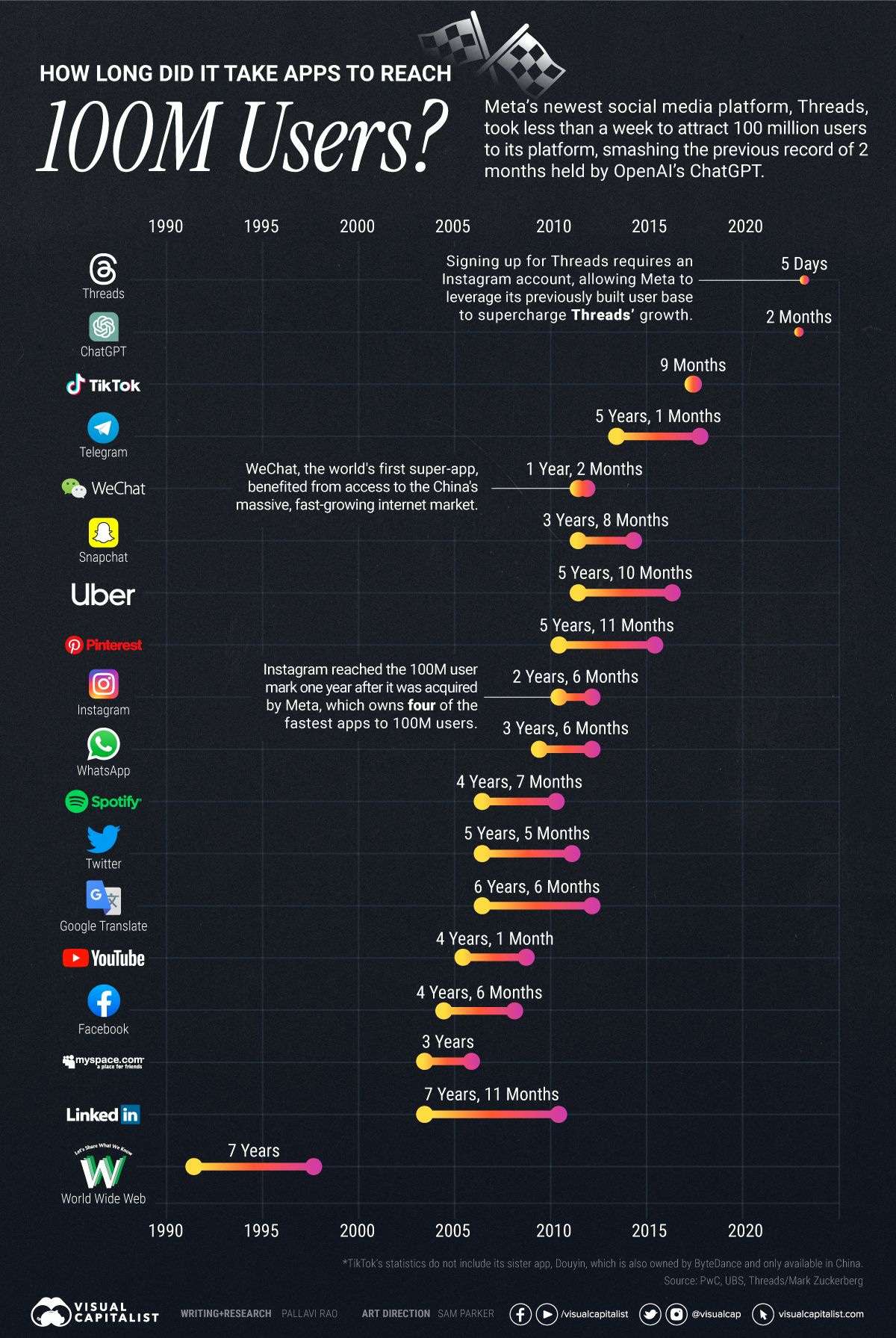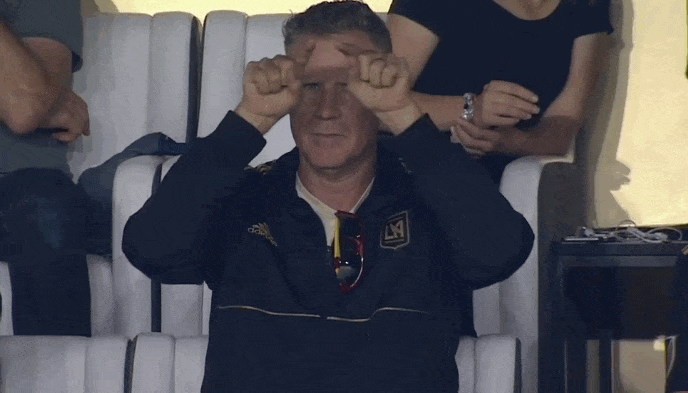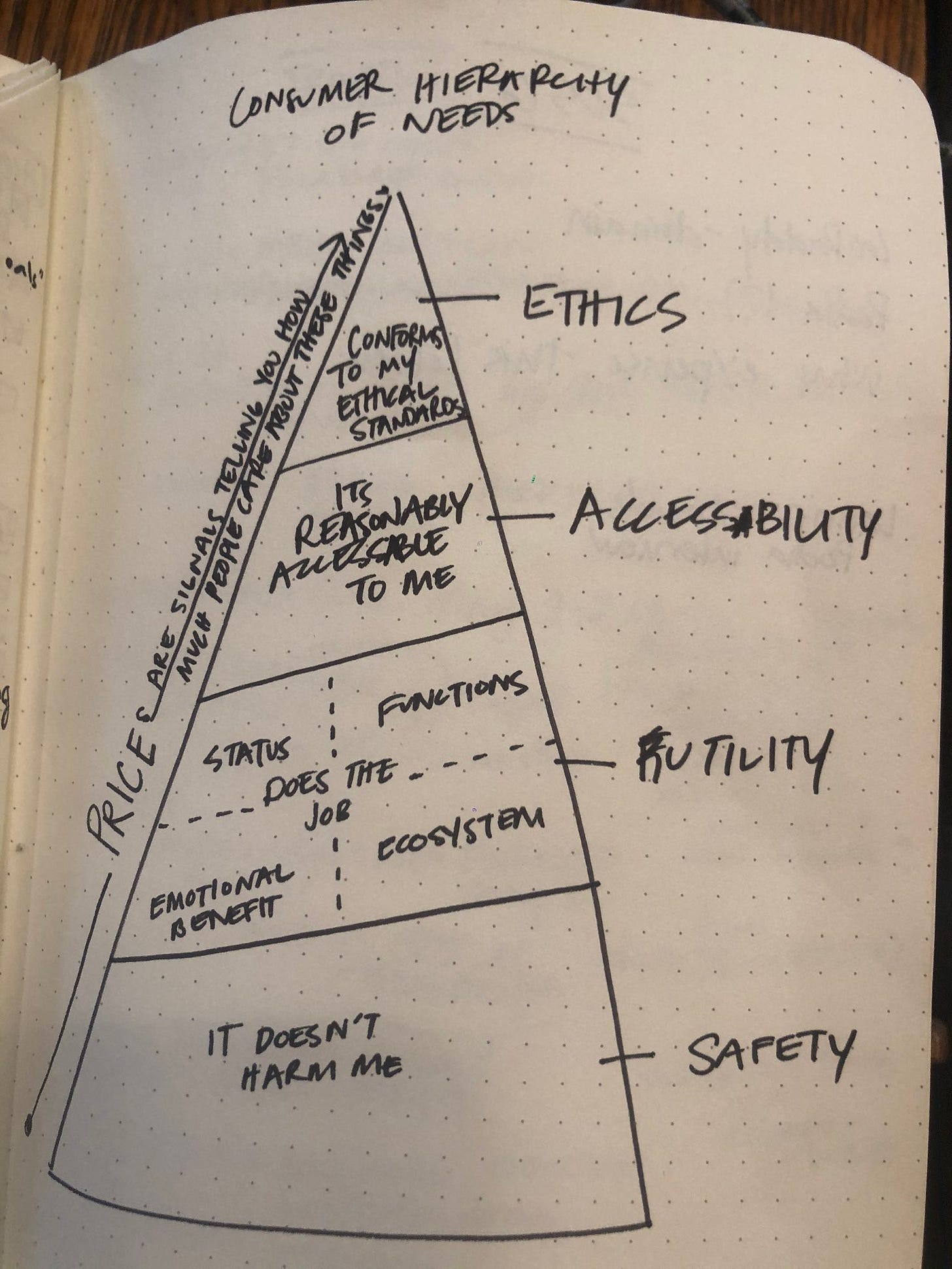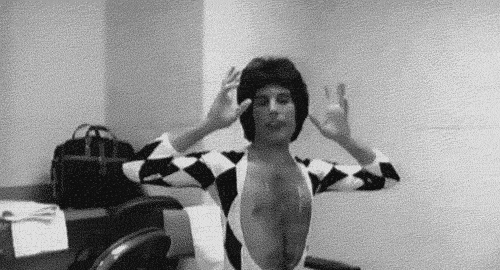The FA and the Beeb; Everyone Everywhere; Putting a cost on sport's Great Platform Giveaway; Elton Mayo on VAR; Data as arse covering; The purpose trap; Will Mercury rise; UP on TikTok
Overthinking the sports business, for money
The Great Giveaway: Does anyone have a number for the value of sport content on Google and Meta?
News publishers all over the world have tried to estimate what Google and Meta owe them for the news they distribute to audiences.
A new working paper from the Poynter Institute estimates that Google and Meta owe U.S. publishers between $11.9 and $13.9 billion a year.
Got me wondering about the equivalent figure for sport content.
Obviously, this is a question that goes beyond Google and Meta.
As this week’s Visual Capitalist chart shows, the challenge of building value in the platform era is just getting started.
Which brings us to this week’s podcast.
Everyone Everywhere
It’s episode three of Project 2030, our collaboration with Two Circles.
The main question was, what does content strategy mean over the next decade?
How does sport play with the platforms? And what has it learnt from the last decade?
We gathered together The FA and the BBC in the same room.
Add the Church of England and you get the three most argued about organisations in Britain.
In a fragmented media universe of niches, both have big, broad remits to serve everyone everywhere.
Fascinating conversation.
Guests
Ben Gallop, Head of Radio and Digital at BBC Sport
Natalie Gibson, Senior Video Content Manager, The FA
Moe Hamdhaidari, Head of Commercial, Content at Two Circles
Timeline
00:13 Discussion on how Drive to Survive emerged as an idea.
01:51 Ben's Role and Experience in Digital and Commissioning for BBC Sports
02:32 Challenges in the Shift to Digital Media
03:45 Moe's Role and Experience in Commercial Content
04:50 Challenges in Building Meaningful Relationships with Fans
06:00 Discussion on Direct to Consumer and Cultural Shifts
07:10 Comparison Between Working for F1 and the FA
08:47 Understanding the Lionesses' Fanbase
09:52 BBC's Approach to Covering the Lionesses
14:01 Discussion on Content Strategy
16:41 The FA's Approach to Content Strategy
18:15 BBC's Relationship with Platforms
27:03 Discussion on Official and Unofficial Content
29:32 The Fifth Stand: Chelsea's Digital Stand
29:45 The Power of Forums and User-Generated Content
30:51 Leveraging Supporters Clubs for Global Reach
31:31 The Evolution of Media Companies and Editorial Control
34:43 Engaging Younger Fans and the Role of Platforms
36:18 The Rise and Impact of Podcasts in Sports
50:22 The Role of AI in Sports Media
55:00 The Intersection of Sports and Entertainment
Elton Mayo’s Guide to VAR
What happened?
The VAR audio from the Newcastle Arsenal game was released this week.
Specifically, what the ref and the VAR room were talking about around the goal.
Why do we care?
That audio clip will quickly become a historical artefact. Along with other recent snippets.
We should treasure it. Put it in a museum.
Because it might not happen again.
This weekend, things will be different.
They - the ref and the VARs - know without any doubt what they say will be published, in a way they probably didn’t previously.
We will now demand it.
Around every questionable decision.
That’s how access works. It’s like a tide.
Please UP, now add a pretentious social science reference to elevate your simple observation and give it greater intellectual heft.
Ok, will do.
You’ll remember Elton Mayo’s much contested psychological experiment at the Hawthorne Electrical plant in the late 1920s.
The Hawthorne Effect suggests that people’s behaviour changes when they know they’re being observed.
We’re seeing the same thing play out at the Covid enquiry, where the WhatsApp messages of ministers and officials are being revealed.
As Lord Mervyn King, former Governor of the Bank of England said on our recent podcast, turning private conversations public is fun for a while but is a short term game.
The real conversation just goes elsewhere.
So the thing itself becomes a performance, not an authentic private rendering of the conversation.
It becomes riddled with self-consciousness.
VAR started as a technical solution.
It’s now the show.
Sport by McKinsey: Emma Hayes
The US women’s soccer team wants a ‘reset’.
A new era.
The aim is to win the World Cup again.
Exam Question: Who would you get to lead that charge?
Emma Hayes.
Go to a pub and ask that question.
The answer you’ll get is, Emma Hayes.
The rest - ‘multiple rounds of evaluation, abstract reasoning tests and in-depth discussions of strategy’ - is data-as-arse-covering.
The purpose trap
My starting point for all market research is that I don’t believe it.
This is a subset of the UP Rule: The numbers are always wrong.
Doesn’t mean it’s not useful, but so much of it is flawed by design, served up to make a predetermined point.
This week sees another bit of research purporting to give the ‘brand view’ of women’s football.
Spoiler: They seem to like it.
Aggregate Sports found 77% believe brands should sponsor women’s sports, 74% think they should do that equally for men and women and 71% believe women’s sports will increase in popularity in the coming years.
A couple of builds.
Let’s call it the momentum theory of sponsorship: the more people think other people are doing it, the more they’ll copy it.
Corporate FOMO.
This, in aggregate, is good for women’s football, and therefore can be deemed ‘a good thing’.
But.
The commercial argument for the women’s game is that it’s ‘about more than football’.
It’s a purpose play.
This is great if it encourages spending.
But dangerous if that’s all it is.
The job is selling tickets. That’s the ultimate test of demand for a sport.
Corporate sponsorship, like its cousin philanthropy, is obviously integral but can get in the way of the bigger job.
The money can allow a sport property to appear more culturally relevant than it really is.
The last decade has seen the rise of a few high profile properties - SailGP and Formula E are examples - that seem to be constructed as campaigning vehicles (no pun intended) for sponsors.
These properties fall in to the UP category of: I’m glad they exist but I never watch them.
The worry for purpose led sports properties is that they’re vulnerable to shifts in corporate fashion.
We’re at a weird stage.
Sport is obsessed with The Why at a point when big corporates are questioning the marketing efficacy of brand purpose.
See also, our conversation with uber strategist Faris Yakob.
What if, consumer ethics are a luxury good - the pic below is from Faris’ notebook.
See also: What if the purpose is better than the product
See also: How ESG came to mean everything and nothing
Will Mercury rise?
The owners of Lewes FC voted just over two thirds in favour of exploring a deal with investment group Mercury 13.
If it goes ahead, the women's team would be co-owned by the investment group, with the club's parent company remaining 100% fan-owned.
Mercury 13 is a consortium quoted as having $100m (£81.6m) as an acquisition fund to buy women's clubs.
The vote is just a first step.
There’s a way to go before a deal is done.
So we’ll pause on the Lewes question.
But.
What is the question being posed by Mercury13?
Is the focus on ‘lone’ women’s teams?
If you look at the WSL, Lewes is one of the exceptions, in that it’s not connected to a big Premier League/Championship brand club.
Or, will it buy the women’s side of a Premier League club, for example?
I’ve had several people from Premier League/WSL clubs claiming that’s now the live conversation.
Preeti Shetty on our recent Leaders Upload podcast laid out the decision making framework that lies ahead.
It gets to, what’s the women’s team worth, both on its own but also as part of the bigger club bundle?
If you sell it, you remove the cost line - Q. How many WSL teams break even? - but risk losing future potential revenue.
There’s also a broader brand question for Premier League clubs.
What are you, if you don’t have a women’s team?
If the research quoted above is close to true, sponsors will demand a women’s team when talking to Premier League teams.
This runs against the notion of ‘selling off IP on the cheap’ which was the argument from the Man Utd commercial team in the years before they launched a women’s team.
So, plenty of questions, not many answers.
But one to follow.
PIF Takes - Rory and anti-trust
McIlroy has done more than his fair share of work as a human shield for the PGA Tour.
This week he resigned from the PGAT Board.
See previous newsletter: Would you buy a used car from Jay Monahan?
Can’t help thinking Donald Trump called it a year ago.
Did you see we’re on TikTok?
I know, adorable.
Christmas comes early in Mayfair
The UP Christmas do poses a difficult maths problem: How many top end sports biz thought leaders can you fit in to a relatively small upstairs bar?
The answer will be revealed on the evening of Tuesday 28th November.
Invite link below, if you’re coming, don’t delay.
Please press the Like button below to make us more popular.












